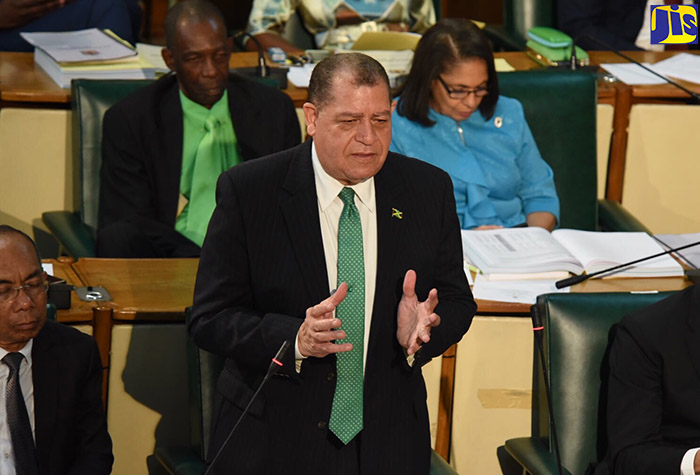Understanding the Budget
By: , March 7, 2018The Key Point:
The Facts
- On February 15, the Minister of Finance and the Public Service, Hon. Audley Shaw, tabled the Estimates of Expenditure in the House of Representatives.
- The Standing Finance Committee of the House has been meeting since then to consider the Estimates.
The Full Story
As the Government prepares to outline how it intends to finance the $773.6-billion Budget for 2018/19, it is important for citizens to understand the importance of the discussion and how it will impact their lives.
Simply put, the Budget proposes how much money the Government will allocate for the services it has to carry out each financial year and how it intends to source the funds to do so. It comprises recurrent (housekeeping) expenditure and capital (development) projects.
On February 15, the Minister of Finance and the Public Service, Hon. Audley Shaw, tabled the Estimates of Expenditure in the House of Representatives.
It outlined the allocation of $560 billion for recurrent expenses, covering salaries and wages for government employees, upkeep of offices, factories, warehouses, etc., and $213.6 billion for capital projects in the areas of health, education, and road infrastructure, among others.
The Standing Finance Committee of the House has been meeting since then to consider the Estimates.
Financial Analyst, Dennis Chung, explains that like a household the Government has to plan its spending.
“Even before you get your salary at the end of the month, what you’ll do is put down how much money you expect to get in terms of salary and then, how you intend to spend,” he notes.
“You have mortgage payments, and there are certain expenses you have to make, for example school fees, and then what’s discretionary; there might be some capital expenditure in terms of repairs and maintenance around your house,” he says further.
Similarly, the Government will take income and expenditure into account in planning, tabling and debating the Budget for the country.
Debt repayment accounts for 40 per cent of the $773.6-billion Budget for the financial year, with the rest being allocated to ministries, departments and agencies (MDAs).
Each citizen will benefit through the various programmes and policies implemented.
Through these allocations, public schools, hospitals and health centres, the security forces and many of the social services from which the public benefits, will be funded.
The Governor-General, in the Throne Speech at the ceremonial opening of Parliament on February 15, indicated that the Government will be providing funding in the Budget to build a new children and adolescents’ hospital in Western Jamaica, construct and maintain rural water systems, complete a number of road improvement projects as well as implement a number of measures to improve the justice system.
The Ministry of Education, Youth and Information is getting $104.6 billion, Ministry of Health has been allocated $66.16 billion and the Ministry of National Security $78.4 billion.
For the Ministry of Economic Growth and Job Creation, $33.7 billion has been allocated; The Ministry of Justice has received $9.5 billion; and Office of the Prime Minister, $11.39 billion.
The Budget is funded through revenue from taxes, including property, income and general consumption tax; non-taxation measures such as capital payments that come in grants from multilateral organisations; and loans.
The Minister of Finance has indicated that there will be no new taxes for this fiscal year.
Through prudent management of the public purse, the Government has steered the Jamaican economy along a path to prosperity, with the growth outturn at 1.1 per cent for 2017/18. The Ministry’s Policy Paper for 2018/19 estimates a 2.5 per cent growth for the financial period.

